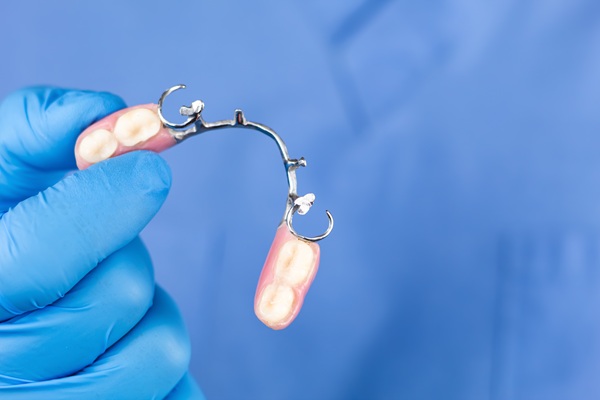Gum Disease Dumont, NJ
Solutions for gum disease can help restore your overall oral health. Gum disease is largely preventable. However, if treatment is needed, you will need to see a dental professional.
Solutions for gum disease are available at Dumont Family Dental in Dumont and the surrounding area. Take the first step toward recovery. Call us today at (201) 374-7202 to schedule an appointment and learn more.
Understanding Gum Disease and Its Causes
Gum disease is an oral health condition involving severe inflammation of the gingival tissue that surrounds and protects the teeth. Gum disease is caused by plaque, a sticky film that forms on the surface of the teeth and acts as a breeding ground for harmful bacteria to grow. A buildup of plaque causes inflammation that can progress into an infection.
Gum disease is a major cause of edentulous, or tooth loss, in adults. Other common complications that can arise from gum disease include advanced periodontal disease, respiratory disease, rheumatoid arthritis, coronary artery disease, and problems controlling blood sugar in diabetes. As the mouth is a leading gateway to the rest of the body, bacteria from plaque buildup can travel through the bloodstream and affect the airways and other organs.
“Gum disease is caused by plaque, a sticky film that forms on the teeth’s surfaces, and acts as a breeding ground for harmful bacteria to grow.”
Preventing Gum Disease
Although poor oral hygiene is the main cause of gum disease, there are a variety of risk factors that can increase an individual's chances of acquiring gum disease. These risk factors include:
- Smoking
- History of gingivitis
- Pregnancy
- Menopause
- Obesity
- Genetics
- Some types of medicines
However, as plaque is the greatest perpetrator, practicing adequate oral hygiene habits can prevent the development and progression of gum disease. We, along with most dentists, recommend that patients brush their teeth at least twice daily, floss at least once a day, and rinse preferably after every meal.
We suggest brushing, flossing, and rinsing after each meal for patients with early signs of gingivitis or developing gum disease. We will also recommend or prescribe the patient a special gum restorative system to use at home to nourish and restore the gums. It is highly crucial that patients visit their dentist for a routine biannual checkup and cleaning appointment to detect any early signs of gum disease and clean the oral cavity professionally.
“We suggest brushing, flossing, and rinsing after each meal for patients with early signs of gingivitis or developing gum disease.”
Common Signs of Gum Disease
Gum disease is an advanced condition that is usually diagnosed early when a patient exhibits signs of gingivitis. However, patients may not experience pain or noticeable symptoms. Thus, without regular dental visits, the patient may not realize they have gum disease. Healthy gums are light pink and hug the teeth snugly, whereas unhealthy gums are typically discolored and soft. This is often the first sign a dentist or a patient themself may notice.
The American Dental Association lists the common signs that signal a patient may have gum disease:
- Gums that bleed easily
- Red, swollen, tender gums
- Gums that have pulled away from the teeth
- Persistent bad breath or bad taste
- Permanent teeth that are loose or separating
- Any change in the way the teeth fit together when the bite is closed
- Any change in the fit of partial dentures
“Healthy gums are light pink and hug the teeth snugly, whereas unhealthy gums are typically discolored and soft.”
Check out what others are saying about our dental services on Yelp: Gum Disease in Dumont, NJ
Treatment Options
To properly diagnose a patient with gum disease, we measure the pocket depths between the gums and the teeth. Healthy teeth measure about 1 to 3 mm depth, while unhealthy teeth measure pocket depths up to 6 mm. This measurement, also called periodontal probing, also tells us how severe the patient's condition is. We also take X-rays and conduct a physical examination of the mouth.
The National Health Service (NHS) describes a few dental procedures that have been found effective in treating gum disease, including scale and polish, root planing, and surgery. Flap surgery, a common minor surgical procedure, involves lifting the gums back, thoroughly cleaning out the infection, and reshaping the bone. The flap is then reattached to the teeth more firmly as to solve the deep pocket depths present before surgery. The gums then naturally heal over the teeth.
“The NHS describes a few dental procedures that have been found effective in treating gum disease, including scale and polish, root planing, and surgery.”
Questions Answered on This Page
Q. What is gum disease and what causes it?
Q. How can I prevent getting gum disease?
Q. What are common signs of gum disease?
Q. What are some treatment options for gum disease?
People Also Ask
Q. What can I do about receding gums?
Q. What lifestyle factors can trigger gum bleeding?
Q. What are the benefits of getting a gum contouring procedure?
Q. Am I at high risk for developing oral cancer?
Q. Where can I learn more about my dental diagnosis and treatment?
Q. What family members may need extra help with their oral hygiene?
Prevalence of Gum Disease
Gum disease is quite a common condition, especially in adulthood, due to the natural wear and tear of teeth. Results from a Centers for Disease Control and Prevention (CDC) study showed that 47.2% (nearly half) of adults aged 30 years and older in the U.S. have some form of periodontal disease, and 70.1% of adults 65 years and older have periodontal disease. The same study found that men, low-income, uneducated or poorly-educated individuals, and current smokers are at a higher risk than their counterparts.
Although gum disease appears to be quite common, it is most effectively treated when detected in its early stages. Individuals who visit their dentist routinely will be diagnosed with early gingivitis before the infection spreads to become gum disease. It is important to visit the dentist biannually and any time one is experiencing pain, discomfort, or any of the symptoms related to gum disease.
“…47.2% (nearly half) of adults aged 30 years and older in the U.S. have some form of periodontal disease and 70.1% of adults 65 years and older have periodontal disease.”
Frequently Asked Questions
Q. Is gum disease curable?
A. Gum disease is reversible in mild to moderate cases in which the infection has not caused severe side effects, such as tooth loss. Periodontal disease, the advanced stage of gum disease, is not reversible. It is important to undergo treatment immediately after a diagnosis to prevent further progression of the disease.
Q. What is the link between gum disease and cardiovascular disease?
A. The mouth is one of the main entryways to the rest of the body and any bacteria, good or bad, travels through the airways to the respiratory system. Plaque is an extremely harmful bacteria that can clog arteries and the heart valves, causing cardiovascular problems.
Q. How can I treat gum disease at home?
A. There are many at-home treatments for gum disease today, including special tools and mouthwashes that help strengthen the gums and remove plaque. However, no at-home treatment trumps professional dental cleanings. We use medical-grade tools made especially for the teeth and gums and have the necessary training to combat oral disease and infection. Even a simple routine dental cleaning can reduce or eliminate gum disease by clearing the pockets and minimizing depths.
Q. How much does gum flap surgery cost?
A. Flap surgery, also called surgical pocket reduction, is considered a minor surgery. The surgery typically costs between $1,000 to $3,000 for patients paying out-of-pocket. Most insurance plans cover gum disease treatment as it is a severe condition that can put a patient's oral health at risk. We encourage patients to talk to their insurance provider to fully understand what their plan entails.
Q. What if gum disease is left untreated?
A. When gum disease goes untreated, the infection inevitably spreads and destroys more of the gums, underlying bone, and jaw. That is why loose teeth and tooth loss are common complications of the disease. Gum disease can also result in cardiovascular and respiratory issues as plaque travels through the mouth to the airways and valves within our other body systems.
Gum Disease Terminology
Learn More Today
Gum disease may lead to worse oral health problems further along the line. We at Dumont Family Dental may be able to help. Call us today at (201) 374-7202 to schedule an appointment and learn more.
Helpful Related Links
- American Dental Association (ADA). Glossary of Dental Clinical Terms. 2024
- American Academy of Cosmetic Dentistry® (AACD). Home Page. 2024
- WebMD. WebMD’s Oral Care Guide. 2024
About our business, and website security
- Dumont Family Dental was established in 1973.
- We accept the following payment methods: American Express, Cash, Check, Discover, MasterCard, and Visa
- We serve patients from the following counties: Bergen County
- We serve patients from the following cities: Dumont, New Milford, Bergenfield, Tenafly, Cresskill, Demarest, Haworth, Hackensack, Englewood, Teaneck, River Edge, and Paramus
- National Provider Identifier Database (1689734162). View NPI Registry Information
- Norton Safe Web. View Details
- Trend Micro Site Safety Center. View Details
Back to top of Gum Disease











